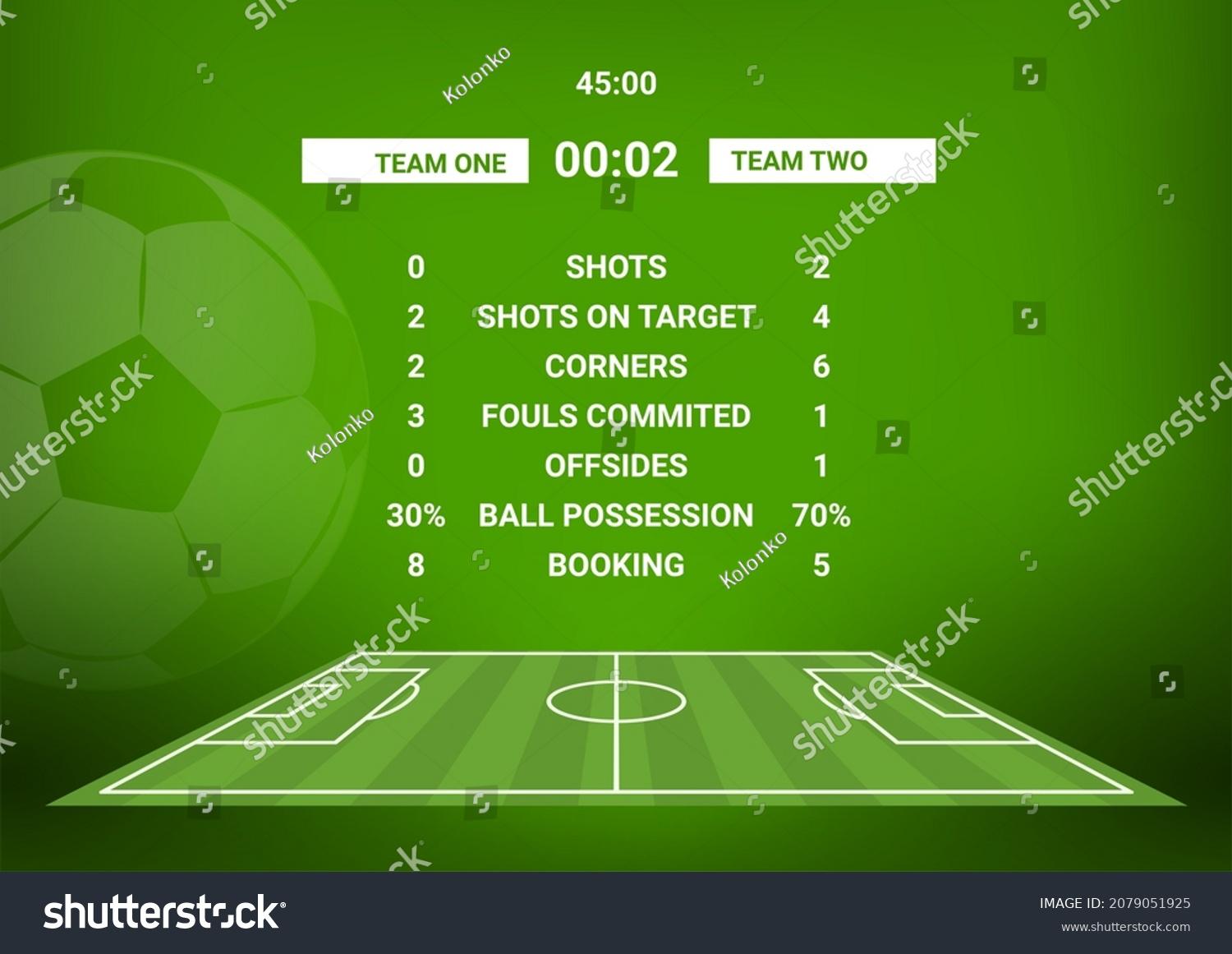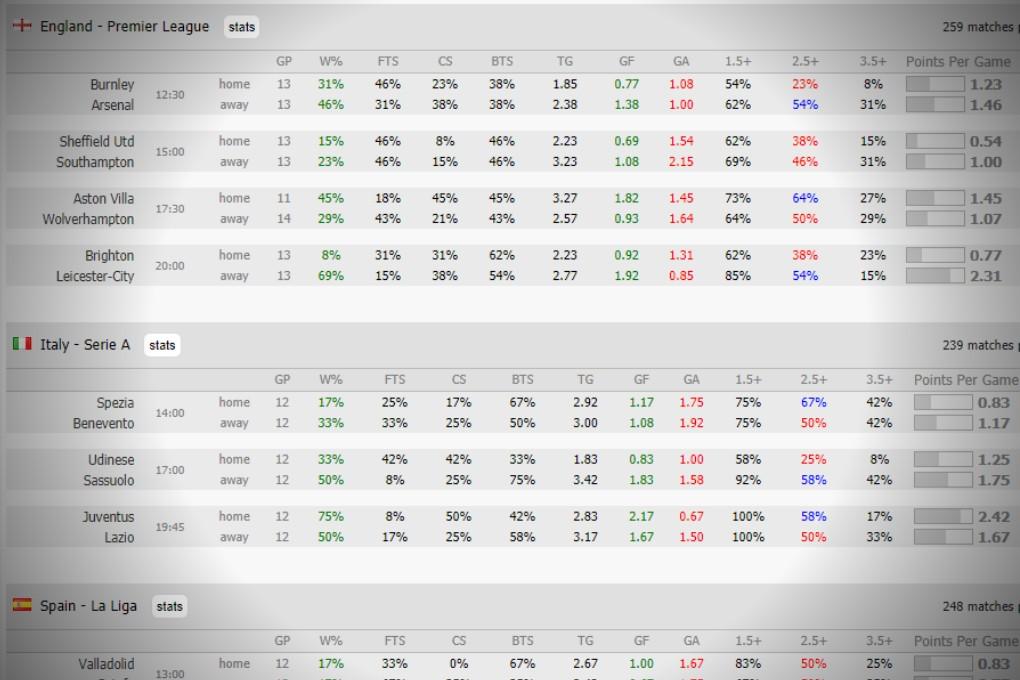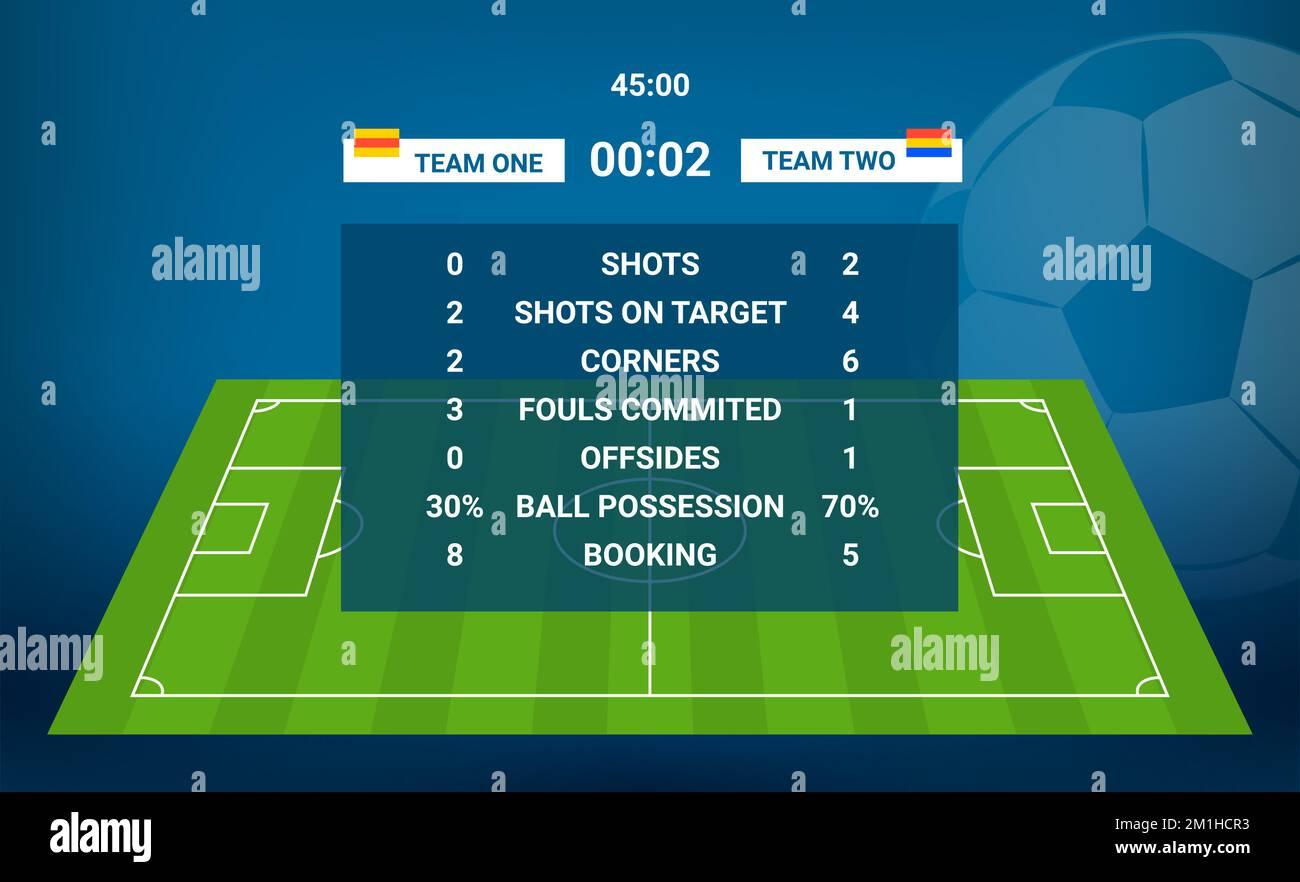In the world of sports betting, knowledge is power—especially when it comes to soccer. As the beautiful game captivates millions with its exhilarating plays and unpredictable outcomes, the savvy bettor knows that success lies not just in luck, but in understanding the numbers that dance behind each match. From player performance metrics to team statistics, delving into soccer stats can illuminate trends and reveal opportunities that might otherwise go unnoticed. In this article, we will guide you through the essential statistics that can elevate your betting strategy, ensuring that your decisions are informed, analytical, and grounded in data. Whether you’re a seasoned gambler or a newcomer looking to place your first bet, harnessing the right soccer statistics will be your key to navigating the thrilling—and often risky—arena of sports wagering.
Table of Contents
- Understanding Key Soccer Metrics for Smart Betting
- Evaluating Team Form and Player Performance Trends
- The Impact of Home and Away Statistics on Match Outcomes
- Harnessing Advanced Analytics for Predictive Betting Strategies
- Q&A
- To Wrap It Up

Understanding Key Soccer Metrics for Smart Betting
In the ever-evolving world of soccer betting, understanding key metrics is vital for making informed wagers. Metrics such as expected goals (xG), which measures the quality of scoring chances, and possession percentage, which indicates a team’s ability to dominate play, are instrumental in determining a team’s potential performance. Other important statistics include shots on target, which reveal attacking efficiency, and defensive errors, which highlight vulnerabilities that could be exploited by opponents. In combination, these metrics paint a comprehensive picture of a team’s strengths and weaknesses.
Moreover, historical data trends can also significantly influence betting decisions. For instance, looking at a team’s home vs. away form can provide insights into their reliability in different environments. Consider keeping an eye on head-to-head results to understand rivalries and psychological factors that may affect outcomes. Additionally, tracking player injuries and suspensions can sway the dynamics of a match. With this wealth of information at your disposal, you can make smarter bets that reflect the true performance capabilities of the teams involved. For more sports betting insights, check BetReward.

Evaluating Team Form and Player Performance Trends
Understanding team dynamics and individual performances is vital for making informed betting decisions. When analyzing team form, consider various factors that shape their recent performances:
- Match Results: Look for patterns in wins, losses, and draws over the last several games.
- Scoring Trends: Determine the average number of goals scored and conceded in recent matches.
- Home vs. Away Performance: Assess how teams perform in their home stadium versus on the road.
Additionally, evaluating player performance trends can provide insight into potential game outcomes. Key aspects to keep in mind include:
- Injury Status: Monitor injured players and their impact on team strength.
- Player Form: Look at individual statistics like goals, assists, and overall contributions during recent fixtures.
- Head-to-Head Records: Analyze historical data between competing teams and standout players.
Utilizing a combination of these elements offers a comprehensive view, enabling better predictions in the unpredictable world of soccer betting.

The Impact of Home and Away Statistics on Match Outcomes
When analyzing match outcomes, understanding the nuances between home and away performances can significantly enhance betting strategies. Teams often exhibit distinct playing styles and results depending on the venue. Home advantage typically manifests through factors such as familiar playing conditions, supporter presence, and reduced travel fatigue. Statistically, home teams win approximately 60% of their matches, making their home performances critical data points for bettors.
Conversely, away teams face unique challenges that can greatly affect their performance. These challenges may include long travel times, unfamiliarity with the pitch, and potentially hostile fans. Observing recent form can provide insights, highlighting trends such as:
- Goals Scored: Assessing how many goals a team scores on the road versus at home.
- Defensive Stability: Comparing goals conceded in both settings.
- Head-to-Head Records: The historical performance of teams facing each other, factoring in location.
To further illustrate these dynamics, consider the following table displaying home and away averages for a selection of teams:
| Team | Home Wins | Away Wins | Average Goals Scored (Home/Away) |
|---|---|---|---|
| Team A | 12 | 5 | 2.5 / 1.2 |
| Team B | 10 | 8 | 1.8 / 1.5 |
| Team C | 15 | 4 | 3.0 / 0.9 |
By synthesizing these statistics, bettors can devise more informed predictions, increasing their chances of successful wagering. Exploring resources such as BetReward can further enhance one’s understanding of these impacts and lead to more strategic betting decisions.

Harnessing Advanced Analytics for Predictive Betting Strategies
In the competitive world of sports betting, leveraging advanced analytics can offer a significant edge. By utilizing a mix of historical data and real-time statistics, bettors can develop predictive models that enhance their decision-making process. Key factors to consider include:
- Team Performance Metrics: Analyze possession percentages, goal conversion rates, and defensive capabilities.
- Player Analytics: Consider individual performance stats such as player injuries, past match performances, and head-to-head records.
- Environmental Factors: Take into account aspects like match location, weather conditions, and crowd influences which can alter a game’s outcome.
One effective approach to synthesize this wealth of information is to create predictive models that simulate match outcomes. A straightforward table could represent various outcomes, demonstrating how different variables impact the likelihood of winning and losing. For example:
| Matchup | Win Probability (%) | Key Insights |
|---|---|---|
| Team A vs. Team B | 65 | Home advantage; Player X is in top form. |
| Team C vs. Team D | 35 | Strong away record; Key player injured. |
Supporting your betting strategy with such predictive analytics not only helps in making more informed choices but also assists in managing risks more effectively. Exploring resources like BetReward can offer additional insights and analytics tools tailored for the dedicated bettor.
Q&A
Q&A: Soccer Stats for Betting
Q1: What are soccer statistics, and why are they important for betting?
A1: Soccer statistics encompass a wide range of data points related to matches, teams, and players, including goals scored, assists, possession percentages, shots on target, and more. These statistics are crucial for betting as they provide insights into team performance, form, and strategies. By analyzing these figures, bettors can make more informed decisions, enhancing their chances of predicting outcomes accurately.
Q2: Which soccer stats should bettors prioritize when researching teams?
A2: Bettors should prioritize stats that reflect a team’s current form and style of play. Key metrics include:
- Goals per game: Indicates scoring ability.
- Goals conceded: Offers insight into defensive strength.
- Shots on target: Helps gauge offensive pressure.
- Possession stats: Reveals control and dominance in matches.
- Head-to-head records: Shows past performance against specific opponents.
- Injury reports and player statistics: Essential for understanding potential impacts on a game’s outcome.
Focusing on a combination of these can provide a well-rounded understanding of a team’s capabilities.
Q3: How can bettors utilize advanced metrics in soccer?
A3: Advanced metrics, such as Expected Goals (xG), Expected Assists (xA), and Player Efficiency Ratings, go beyond basic stats to offer a more nuanced view of performance. For instance, xG quantifies the quality of chances created, helping bettors assess whether a team is underperforming or overperforming relative to their scoring stats. By integrating advanced metrics into their betting strategies, bettors can uncover value bets that traditional stats might miss.
Q4: Are historical statistics relevant when betting on soccer?
A4: Absolutely! Historical statistics are invaluable for context. They reveal trends over time, such as how specific teams perform under different conditions (home vs. away, against certain opponents, etc.). Bettors can gauge how consistently a team has performed in the past, which can be a strong indicator of future performance. However, it’s essential to balance historical data with current form and conditions, as soccer can be quite volatile.
Q5: Can soccer stats change during a season, and how should bettors adapt?
A5: Yes, soccer stats can shift significantly throughout a season due to factors like injuries, transfers, managerial changes, and fluctuating team morale. Bettors should continuously monitor these changes and adjust their strategies accordingly. Staying updated with team news, statistical trends, and player performances helps keep betting strategies relevant and responsive to the evolving landscape of the sport.
Q6: What role does betting psychology play alongside statistical analysis?
A6: Betting psychology is an often overlooked but critical component. While statistics provide a solid foundation for decisions, the psychology of betting—such as cognitive biases, emotional responses, and overconfidence—can affect judgment. Betters should complement their analytical approach with self-awareness, ensuring they remain disciplined and objective, avoiding the pitfalls of emotional betting and sticking to their strategy based on data.
Q7: How should beginners start incorporating soccer stats into their betting?
A7: Beginners should start by focusing on a few key statistics rather than trying to absorb everything at once. Establish a betting strategy that includes analyzing team form and key match stats to inform your wagers. Setting up a simple spreadsheet to track performance metrics can help visualize patterns. Additionally, engaging in online forums or reading expert analyses can provide insights and enhance your understanding of how stats translate into betting opportunities.
By leveraging soccer stats effectively, bettors can enhance their strategies and hopefully enjoy a more successful and engaging betting experience. As with any form of gambling, it is vital to remain knowledgeable, disciplined, and aware of the inherent risks involved.
To Wrap It Up
In the intricate dance of soccer betting, where every goal can shift the tides and every injury can rewrite the script, understanding the stats becomes your trusted compass. As we conclude our exploration of soccer statistics for betting, remember that every data point tells a story—a tale of players’ strengths, teams’ tactics, and trends that can illuminate the path to informed decisions.
Harnessing these insights won’t guarantee victory in every wager, but they will empower you to navigate the exhilarating world of sports betting with greater confidence. As you analyze past performances, study player statistics, and assess team dynamics, let the numbers guide your strategy, but always pair them with your intuition and experience.
So whether you’re a seasoned bettor or a curious newcomer, may the knowledge gained here elevate your understanding of this beautiful game. With each match played, there’s always a chance to turn the statistics in your favor. Good luck, and may the odds be ever in your favor!